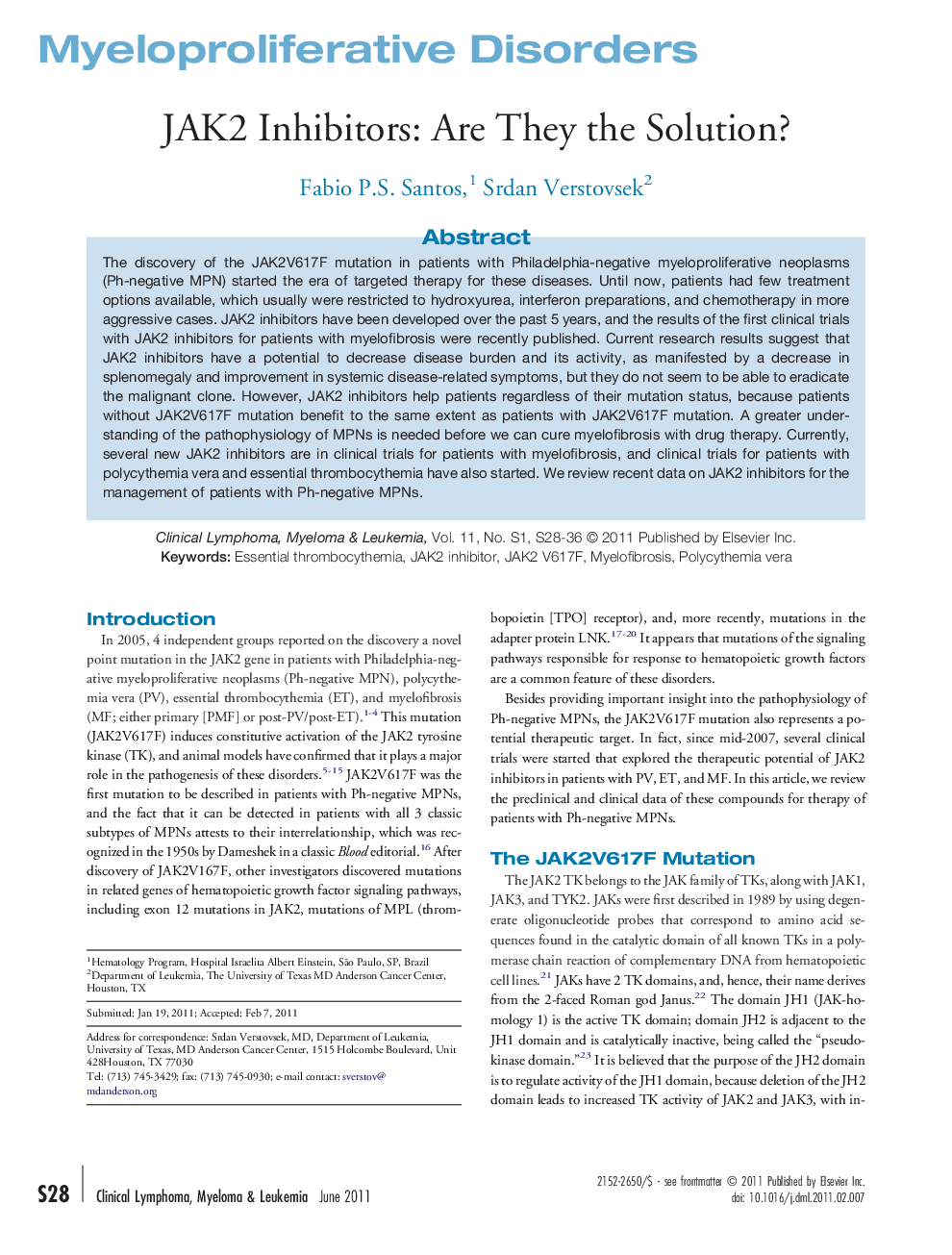| Article ID | Journal | Published Year | Pages | File Type |
|---|---|---|---|---|
| 2755156 | Clinical Lymphoma Myeloma and Leukemia | 2011 | 9 Pages |
The discovery of the JAK2V617F mutation in patients with Philadelphia-negative myeloproliferative neoplasms (Ph-negative MPN) started the era of targeted therapy for these diseases. Until now, patients had few treatment options available, which usually were restricted to hydroxyurea, interferon preparations, and chemotherapy in more aggressive cases. JAK2 inhibitors have been developed over the past 5 years, and the results of the first clinical trials with JAK2 inhibitors for patients with myelofibrosis were recently published. Current research results suggest that JAK2 inhibitors have a potential to decrease disease burden and its activity, as manifested by a decrease in splenomegaly and improvement in systemic disease-related symptoms, but they do not seem to be able to eradicate the malignant clone. However, JAK2 inhibitors help patients regardless of their mutation status, because patients without JAK2V617F mutation benefit to the same extent as patients with JAK2V617F mutation. A greater understanding of the pathophysiology of MPNs is needed before we can cure myelofibrosis with drug therapy. Currently, several new JAK2 inhibitors are in clinical trials for patients with myelofibrosis, and clinical trials for patients with polycythemia vera and essential thrombocythemia have also started. We review recent data on JAK2 inhibitors for the management of patients with Ph-negative MPNs.
